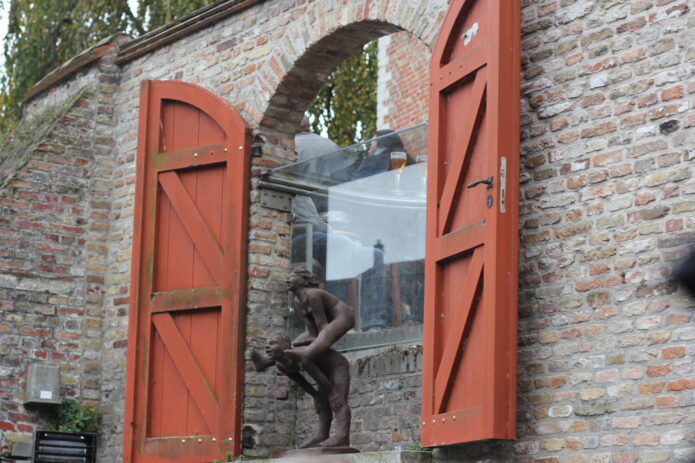Far back in time, I was part of a theatre group called The Fourth Wall. It was led by a passionate, artistic, and wonderful gentleman, Prof. Elango. A truly exceptional man who made even the most hesitant actors feel like stars. The group was also home to some incredibly talented people who have gone on to become real stars in so many different fields. Those were life-defining days. Oh, to experience what it means to be a protagonist!
For a long time, I thought The Fourth Wall was just a clever name. Until one day, after I stumbled through my lines and felt utterly defeated during rehearsal, Prof. Elango sat me down over tea – tea with enough sugar to put me into orbit – and explained it all.
As far as I can recall, the “fourth wall” is the invisible line between the actors on stage and the audience watching them. The actors act as if the audience isn’t there, and the audience pretends not to interrupt. It’s what keeps the story alive, contained in its own world. That was an education I have always remembered!
A few weeks ago, I was having an invovled chat with some very bright people who I respect. Thats when I heard about something called The Fourth Place, for the first time. I couldn’t help but smile. The name felt oddly familiar. Since then, I learned that sociologist Ray Oldenburg had once described the Third Place – informal spaces like cafés, parks, or libraries where people come together. And now, here was the Fourth Place, a new idea shaped by our digital age.
The Fourth Place isn’t about stages, coffee shops, or bustling parks. It’s about digital spaces. It’s where people meet online to connect, share ideas, and feel a sense of belonging. Gaming platforms, Reddit threads, Discord servers – all these create a kind of virtual stage where geography doesn’t matter, and time zones are mere suggestions.
Here is something more on Fourth Places that I read with great interest. Something for you to chew on too.
Here’s how the “places” stack up:
- Home – where we relax.
- Work or study – where we focus.
- Third Place – where we meet others face-to-face.
- Fourth Place – the digital worlds where connection happens without proximity.
Our conversation centred around how our priorities have shifted over time. Home, the First Place, remains a personal and private space. Work, the Second Place, is still essential and structured. The Third Place, like cafés or parks, provides a social escape. But the Fourth Place captures something unique about modern life: it’s where people go online to build meaningful connections, explore hobbies, and create virtual communities that go beyond physical boundaries.
I remember the thrill of Yahoo chat rooms back in the day. Talking to someone halfway across the world felt magical. The Fourth Place takes that magic and makes it ordinary – part of our everyday lives.
And yet, I wonder: does this digital world replace the joy of sitting across a table, laughing over tea with too much sugar? Or is it just another act in the play – something to add, not replace?
Perhaps the Fourth Place isn’t the end of the story but the beginning of a new one. A dialogue where we keep discovering new walls to break. Or maybe, to keep just as they are.
Rethinking the Future
The Fourth Place is redrawing boundaries we once thought were fixed. Where does an organisation end when communities stretch across industries, countries, and time zones?
Workplace design has no choice but to adapt. Offices must now accommodate people who may never sit at a shared desk.
The idea of community is shifting too. It’s no longer about catching up over coffee in the pantry. It’s about shared passions, often nurtured on digital platforms, with people you might never meet in person.
While desks, chairs, and coffee are easy enough to provide, the real challenge lies in fostering a mindset that thrives in this new setup. It’s not about the tools themselves – it’s about using them imaginatively to fit the times we live in.
As these boundaries blur, the focus must shift to making connections meaningful. Can digital interactions ever feel as warm as a conversation over tea with far too much sugar? And as organisations embrace this changing world, how do they stay grounded in what makes them unique?
The Fourth Place isn’t just a new act – it’s an entirely new stage. The question is: are we ready to step onto it?


